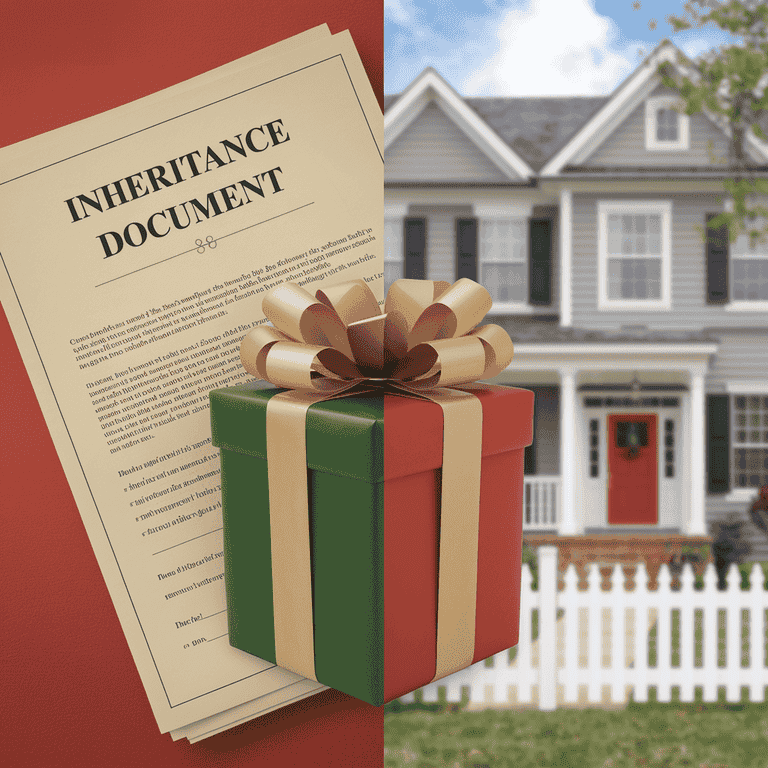Navigating the complexities of divorce in Nevada means understanding how the state’s community property laws affect asset division. Unlike states that follow equitable distribution, Nevada’s approach to dividing assets is based on the idea that everything acquired during the marriage belongs equally to both spouses. This post will help you grasp the essentials of Nevada’s community property system, explore how it impacts your divorce, and highlight key differences from other states.
Overview of Nevada’s Community Property System
Nevada is a community property state, meaning that almost all property and income acquired during the marriage are jointly owned by both spouses. This system applies regardless of which spouse earned the income or whose name is on the title of an asset.
Definition of Community Property
Community property includes:
- Income earned by either spouse during the marriage
- Property bought with marital earnings
- Debts incurred during the marriage
Suppose you or your spouse bought a home or car or accumulated credit card debt during marriage. In that case, these are generally considered community property and are subject to division in a divorce.
How Nevada’s Approach Affects Divorcing Couples
This approach can significantly impact how you plan for your financial future post-divorce. Knowing that assets will generally be divided down the middle allows for clearer expectations, but it can also be a shock if you were the primary earner or held assets in your name alone.
Community Property vs. Separate Property
When dividing assets, it’s crucial to distinguish between what’s considered community property and what’s separate property.
Definition of Marital Assets
Marital assets are all assets acquired during the marriage, regardless of who paid for them or whose name they are under. This includes:
- Joint bank accounts
- Real estate purchased during the marriage
- Vehicles acquired with marital funds
- Retirement accounts contributed to the marriage
Definition of Separate Property
Separate property typically includes:
- Property owned before the marriage
- Gifts or inheritances received by one spouse alone during the marriage
- Personal injury awards (except for lost wages)
Keeping separate property is essential; commingling these assets with marital assets (like using an inheritance to pay off a jointly-owned home) can turn them into community property.
How to Determine Community Property vs. Separate Property in Nevada
Determining community vs. separate property can be straightforward or complex, depending on your situation. The court will look at:
- Date of acquisition
- How the property was used during the marriage
- Whether the property was kept separate or commingled
Clear documentation, such as purchase records or inheritance paperwork, is often helpful in establishing what is separate property.

Asset Division in a Nevada Divorce
Understanding how assets are divided is crucial when you’re going through a divorce in Nevada. Nevada’s community property laws dictate that assets and debts acquired during the marriage are generally split equally between spouses. However, the process can be more complex than it seems.
How Community Property is Divided in Nevada Divorce Law
In Nevada, the court aims to divide all community property down the middle—50/50. This means each spouse gets half the marital assets and takes on half the matrimonial debts. However, it’s not just about the big things like homes or cars. Everything from your furniture to your savings account is included.
Examples of Assets Commonly Considered Community Property:
- Real Estate: Homes, investment properties, or land bought during the marriage.
- Bank Accounts: Joint checking and savings accounts funded during the marriage.
- Vehicles: Cars, trucks, or recreational vehicles purchased with marital funds.
- Retirement Accounts: 401(k)s, pensions, and IRAs contributed to during the marriage.
- Personal Property: Furniture, electronics, and other household items bought during the marriage.
Treatment of Debts Under Community Property Laws
Just as assets are split, so too are debts. Debts incurred during the marriage, like credit card balances, car loans, and even student loans (if they benefited the marriage), are generally divided equally. This can be a surprise, especially if one spouse is responsible for most of the spending.
Common Types of Community Debts:
- Credit card balances
- Car loans
- Home mortgages
- Medical bills
Special Considerations in Nevada Divorce Law
Every divorce is unique, and Nevada’s community property laws have some nuances. Certain agreements and specific circumstances can affect how property is divided.
Impact of Prenuptial and Postnuptial Agreements
If you and your spouse signed a prenuptial or postnuptial agreement, it could dictate how assets are divided. These agreements can outline what each person will receive in a divorce, overriding the default 50/50 split. However, the agreement must be legally sound and not signed under duress to hold up in court.
Handling of Commingled Assets
Commingled assets started as separate property but got mixed with marital property. For example, if you used separate funds to improve the family home or deposited an inheritance into a joint bank account, those funds might be considered community property. Tracing the origins of these funds can be tricky, often requiring detailed records or financial professionals.
Impact on Retirement Accounts and Investments
Retirement accounts can be particularly challenging to divide. Contributions made during the marriage are community property, even if the account is in one spouse’s name. Typically, retirement assets are split using a Qualified Domestic Relations Order (QDRO), which allows the account to be divided without penalties.

Exceptions to the Community Property Rule
Nevada’s community property system has some exceptions that can affect dividing assets.
Gifts and Inheritances as Separate Property
One key exception is gifts and inheritances given to one spouse alone during the marriage. If they haven’t been commingled with marital funds, they are typically considered separate property.
How Separate Property Can Become Community Property
Separate property can unintentionally become community property if mixed with marital assets. For example, using inheritance money to pay off a jointly-owned home could convert that inheritance into community property.
Situations Where the Court Might Deviate from 50/50 Division
Although the standard rule is an equal split, courts can sometimes deviate. If one spouse has committed financial misconduct (like hiding assets) or the division would cause an unfair hardship, the court might adjust the split. These cases are rare but can happen.

How Community Property Laws Impact Divorce Settlements
Community property laws in Nevada significantly influence how divorce settlements are reached. Understanding these laws can help you navigate negotiations, protect your interests, and ensure a fair outcome. Here’s what you need to know when dividing assets in a Nevada divorce.
Importance of Accurate Asset Valuation
Before any asset can be divided, it must be appropriately valued. This step is crucial because an inaccurate valuation can lead to an unfair settlement. You’ll need to know the true worth of your home, vehicles, retirement accounts, and other valuable assets.
Standard Methods of Valuation:
- Appraisals: For real estate and high-value personal property.
- Financial Statements: For bank accounts and investment portfolios.
- Actuarial Calculations: For retirement accounts and pensions.
Without accurate valuations, one spouse might have significantly more than the other. It’s often wise to consult professionals, such as appraisers or financial advisors, to ensure everything is correctly valued.
Role of Mediation and Negotiation in Dividing Assets
Divorces don’t always have to be a battle. Mediation and negotiation are common ways to settle asset division without going to court. In mediation, a neutral third party helps you and your spouse agree on dividing your property.
Benefits of Mediation:
- Saves time and money compared to a lengthy court battle.
- It allows both parties to have more control over the outcome.
- It can preserve a more amicable relationship, especially when children are involved.
Legal Strategies for Protecting Separate Property in Divorce
If you have separate property—assets you owned before the marriage or received as a gift or inheritance—it’s essential to protect it during divorce. One effective strategy is to keep detailed records that prove the asset’s separate status.
Tips to Protect Separate Property:
- Keep Assets Separate: Avoid mixing your separate property with marital property.
- Maintain Records: Document dates of acquisition and source of funds.
- Use Prenuptial/Postnuptial Agreements: Clearly outline what is considered separate property.
These steps can help you keep what’s rightfully yours and prevent disputes over whether something is community or separate property.

Breaking It All Down
Navigating Nevada’s community property laws can feel overwhelming, but understanding the basics is a critical first step. Remember, Nevada law aims for a 50/50 split, but the exact outcome depends on factors like accurate asset valuation, separate vs. community property handling, and any prenuptial agreements in place.
Knowing how these laws work can empower you whether you’re heading into a divorce or simply planning for the future. If you are facing a divorce, consulting with an experienced attorney can help protect your rights and assets. It’s not just about dividing things up—it’s about securing your financial future and confidently moving forward.

Frequently Asked Questions
What happens to property acquired before marriage in Nevada?
Property acquired before the marriage is generally considered separate property and is not subject to division during a divorce. However, it’s important to keep this property separate and not commingled with marital assets to maintain its separate status.
Can I keep my retirement account in a divorce?
Retirement accounts can be divided if contributions were made during the marriage. Nevada’s community property laws consider these contributions as marital property, even if the account is in one spouse’s name. A Qualified Domestic Relations Order (QDRO) is often used to split these accounts fairly without penalties.
Are debts always split 50/50 in a Nevada divorce?
Most debts incurred during the marriage are divided equally, but there can be exceptions. If one spouse incurred debt for non-marital purposes, such as gambling or undisclosed spending, the court might assign that debt solely to that spouse.
Can gifts be considered community property in Nevada?
Gifts given specifically to one spouse are considered separate property, even if received during the marriage. However, if the gift is commingled with marital property—like depositing cash gifts into a joint bank account—it can be deemed community property.
Does Nevada consider future earnings as community property?
Future earnings are generally not considered community property if they are earned after the date of separation. However, any earnings or income generated during the marriage, even from separate property, may be subject to division.
What role do prenuptial agreements play in dividing property?
Prenuptial agreements can significantly influence how property is divided in a Nevada divorce. These agreements can outline which assets are considered separate, dictate the division of community property, and even address spousal support, provided they are legally sound.
How are business interests handled in a Nevada divorce?
If a business was started during the marriage, it’s generally considered community property. Valuation of the business becomes critical, and courts may divide ownership, award one spouse a buyout, or allocate other marital assets to balance the division.
Can we decide how to divide property without going to court?
Yes, many couples choose to negotiate their own division of property through mediation or collaborative divorce. This approach allows for more control over the outcome, can be less stressful, and often costs less than going through a contentious court battle.
Is spousal misconduct considered when dividing property?
Nevada’s community property laws typically do not factor in spousal misconduct, such as infidelity, when dividing assets. The division focuses on fairness in terms of property, not on assigning blame for the end of the marriage.
What should I do if I suspect my spouse is hiding assets?
If you believe your spouse is hiding assets, it’s crucial to work with an attorney who can help uncover those assets. The court can impose penalties for failure to disclose all marital property, and hidden assets can significantly alter the division of property.

Additional Resources for You from The Rosenblum Allen Law Firm.
If you’re navigating the complexities of divorce, remember that you don’t have to do it alone. Our lead attorney, Molly Rosenblum Allen, Esq., has developed a range of resources tailored to help you during this challenging time. These articles offer guidance, support, and answers to many of the pressing questions you may have about divorce in Nevada:
- Las Vegas Divorce Attorney: Understand your legal options and how our firm can help you through every stage of your divorce.
- Nevada Divorce: A comprehensive guide to the divorce process in Nevada, including state-specific laws and what to expect.
- Surviving Divorce: Tips and strategies to help you cope emotionally and financially during and after your divorce.
- What Happens If You Don’t Sign Divorce Papers: Learn about the legal consequences and next steps if one party refuses to sign divorce documents.
- Do I Need an Attorney to Get a Divorce: Insights into the importance of legal representation and when hiring an attorney is crucial.
- What is a Collaborative Divorce: Explore an alternative approach to traditional divorce that focuses on cooperation and negotiation.
- How to Win a Divorce: Strategies to protect your interests and secure a favorable outcome in your divorce.
- Switching Lawyers During Divorce: Guidance on what to consider if you feel your current representation isn’t meeting your needs.
- How Long Does a Divorce Take in Nevada: An overview of the timeline and factors that can affect the length of your divorce process.
- High Conflict Divorce: Advice on managing and navigating the challenges of a contentious divorce.
- Questions to Ask a Divorce Lawyer: Key questions to help you choose the right attorney and understand the divorce process better.
These resources are designed to provide valuable insights and empower you with the information you need during this difficult time. Molly Rosenblum Allen, Esq. and our team are dedicated to helping you make informed decisions every step of the way.

Offsite Resources for You
American Academy of Matrimonial Lawyers (AAML): This organization provides valuable resources and information on all aspects of family law, including divorce, asset division, and financial investigations.
National Association of Divorce Professionals (NADP): NADP connects professionals who help divorcing couples, including forensic accountants, divorce attorneys, and financial advisors, offering guidance on the divorce process.
American Institute of Certified Public Accountants (AICPA): AICPA offers insights into forensic accounting practices, including resources on financial fraud and asset tracing, which are particularly useful during divorce.
Institute of Divorce Financial Analysts (IDFA): The IDFA specializes in the financial aspects of divorce, offering resources on forensic accounting, asset division, and financial planning post-divorce.
Association of Certified Fraud Examiners (ACFE): ACFE provides extensive information on fraud prevention, detection, and investigation, making it a valuable resource for understanding how forensic accountants uncover hidden assets.
Women’s Law Center: Offers a range of resources and support for women going through divorce, including financial advice, legal guides, and access to professionals who can help navigate complex financial situations.

A Special Message from Our Lead Attorney, Molly Rosenblum Allen, Esq

Thank you for taking the time to read our resources. I hope you found the information helpful as you navigate this challenging time. Divorce can be overwhelming, especially when financial complexities are involved, but you don’t have to go through it alone. My team and I are here to provide the support and experience you need to move forward with confidence.
If you’re ready to take the next step, give us a call at (702) 433-2889. Let’s get the ball rolling on your situation and work together to protect your rights and secure your future.
Warm regards,
Molly Rosenblum Allen, Esq.
The Rosenblum Allen Law Firm






